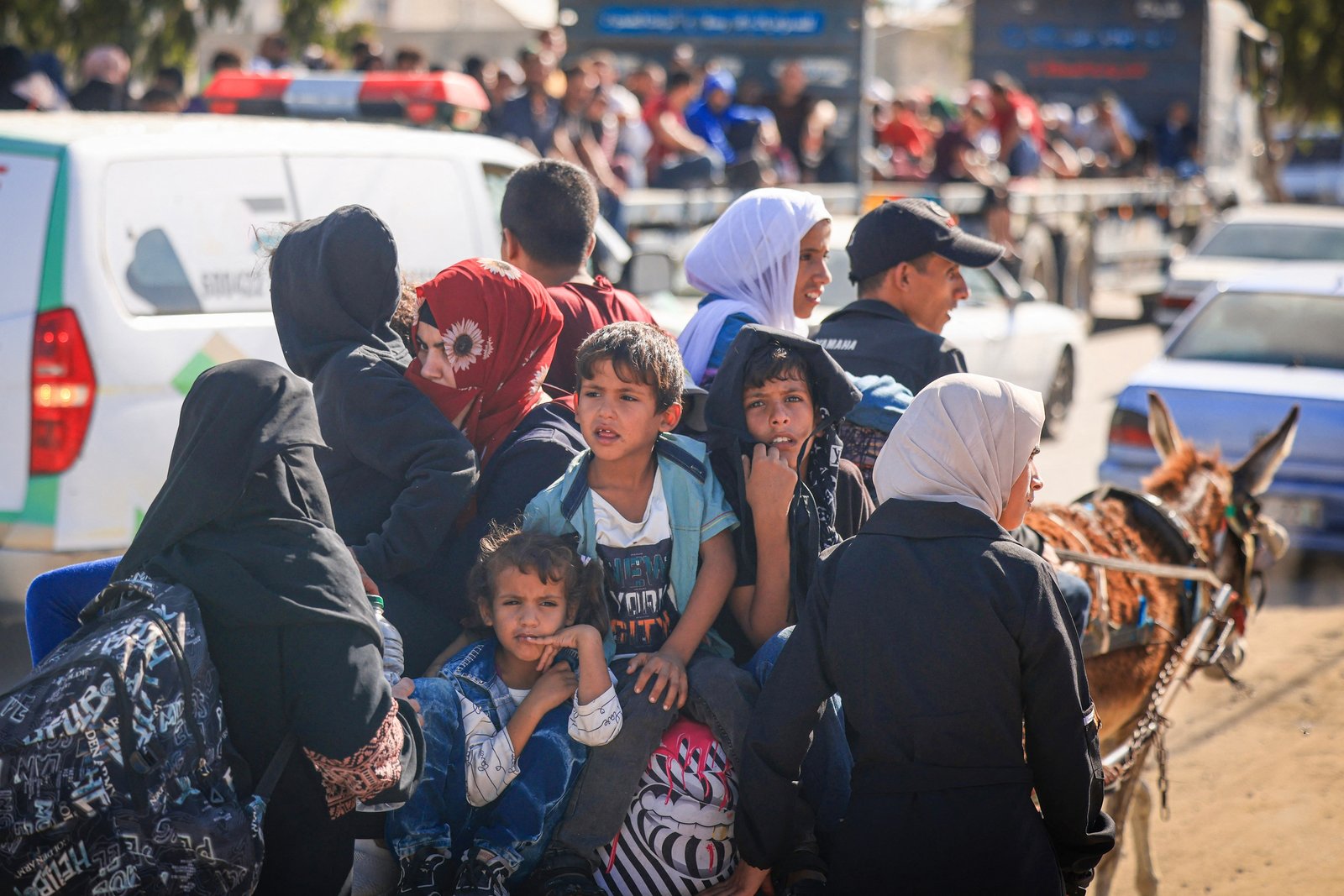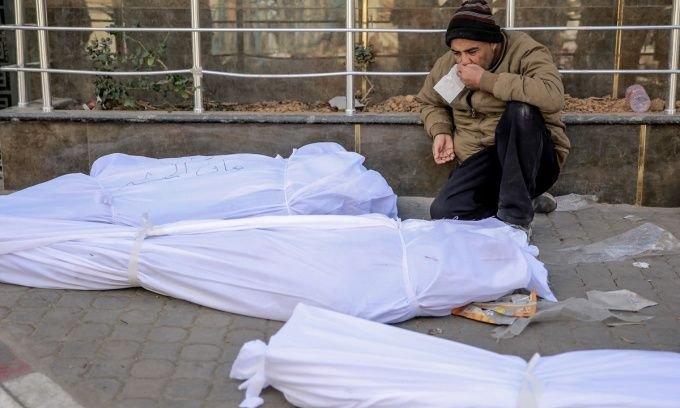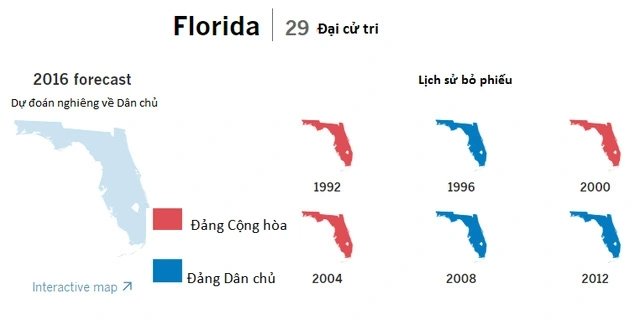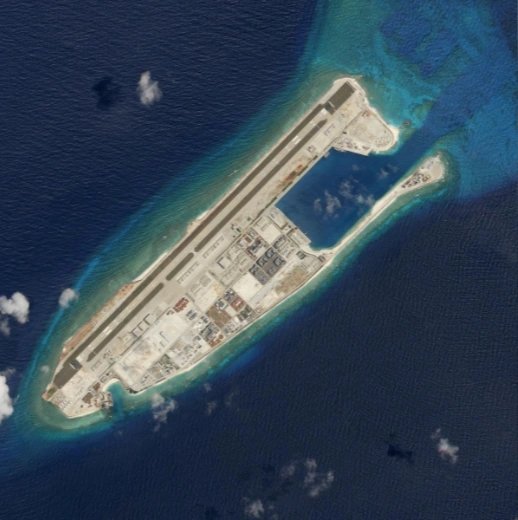
The majority of cases in the Covid-19 epidemic are still concentrated in mainland China, with 77,150 infected people and 2,592 deaths.
Medical staff rest at the entrance of a hospital in Daegu on February 23.
He emphasized the need to learn from `the obvious shortcomings that have been exposed` in how to handle the epidemic.
China’s official data shows that the epidemic is getting better.
However, experts have expressed skepticism about China’s data as the country continuously changed the calculation method within just a week and corrected the number of new infections several times in its daily updates.
Jonathan Read, an epidemiologist at Lancaster University in the UK, said the definition of `case` sometimes needs to be tweaked as officials learn more about the disease.
Some localities in China have begun to relax restrictions.
Wuhan, a city blocked since January 23, this morning announced the easing of the blockade.
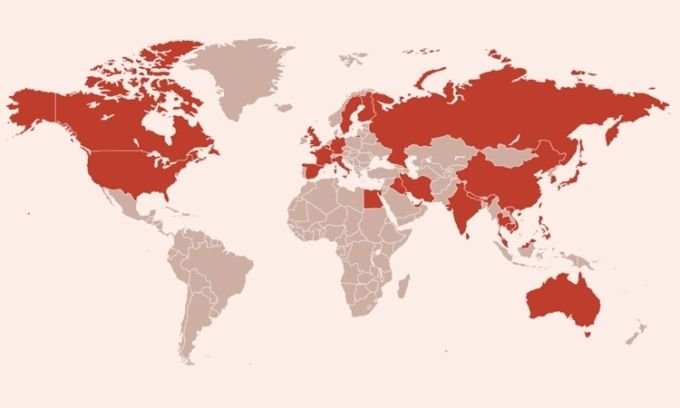
Places with nCoV patients.
South Korea became the second largest outbreak after mainland China, with 833 infected people and 7 deaths.
More than half of nCoV infections in Korea are related to the Shincheonji sect.
South Korean President Moon Jae-in on February 23 raised the nCoV warning to the highest level.
`If we cannot effectively prevent the spread in the Daegu area, there is a high possibility that the epidemic will spread nationwide,` Deputy Health Minister Kim Kang-lip said.
In Japan, most passengers left the Diamond Princess cruise ship, the third largest outbreak in the world, after the 14-day quarantine expired on February 19.
Some experts have criticized Japan’s handling of the outbreak.
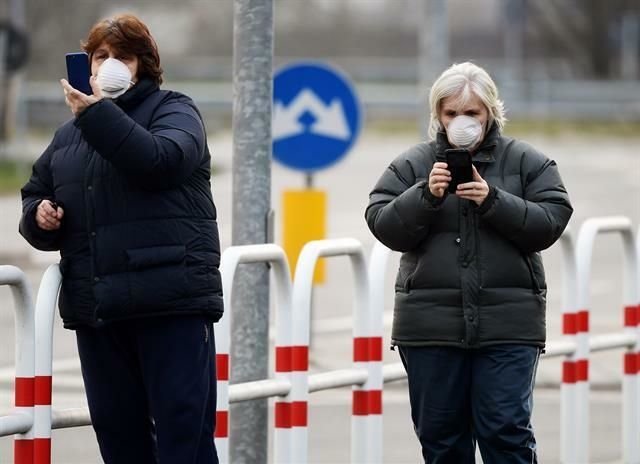
People wear masks in Casalpusterlengo, Italy on February 23.
nCoV is also spreading fear in northern Italy when this area recorded a sudden increase in the number of infections in the past week.
The situation in northern Italy has caused concern elsewhere in Europe.
French Health Minister Olivier Veran announced that he will soon talk with European colleagues to discuss how to respond in a scenario where the epidemic spreads in Europe.
nCoV began to spread rapidly in the Middle East after Iran detected its first two cases of nCoV infection on February 19.
On February 24, Kuwait and Bahrain discovered their first cases, both of whom returned from Iran.
These worldwide developments, with more than 2,600 deaths and nearly 80,000 infections, are causing many people to question whether Covid-19 is serious enough to be called a `pandemic`.
A WHO spokesperson said on February 24 that they had `no longer used the old severity classification system that some people may be familiar with from 2009` and said they currently do not have a `pandemic` category
`I want to assure you that we monitor this virus 24/7,` WHO Director-General Tedros Adhanom Ghebreyesus said last weekend.

